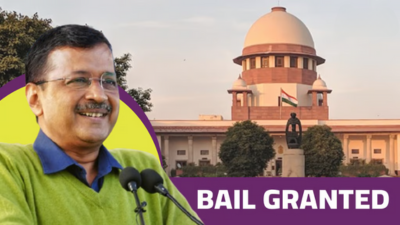On Friday, the Supreme Court granted bail to Delhi Chief Minister and Aam Aadmi Party (AAP) leader Arvind Kejriwal in the case filed by the Central Bureau of Investigation (CBI) regarding alleged corruption linked to the now-revoked 2021-22 Delhi excise policy. A bench comprising Justices Surya Kant and Ujjal Bhuyan issued the order.
While the Court approved Kejriwal’s bail, it upheld the legality of his arrest by the CBI, noting that it was conducted in compliance with proper procedural laws. Kejriwal had submitted two petitions to the Supreme Court—one challenging the legality of his arrest and another seeking bail. The latter was granted, while the former was dismissed.
The Court stated that when a magistrate issues a warrant, the investigating officer is not required to provide further justification. It ruled that Kejriwal’s arrest did not violate Section 41(A)(3) of the Criminal Procedure Code and found no procedural flaws.
Kejriwal’s arrest on June 26 occurred while he was already in judicial custody over a related money laundering case investigated by the Enforcement Directorate (ED). Both the CBI and ED are probing alleged irregularities in the formulation of the now-scrapped excise policy, accusing AAP leaders, including Kejriwal, of accepting kickbacks from liquor lobbyists, which were allegedly used to finance AAP’s Goa election campaign.
Previously, the Delhi High Court denied Kejriwal’s bail plea on August 5, instructing him to approach the trial court first, which led him to appeal to the Supreme Court. The High Court had also rejected his plea to declare the CBI arrest illegal.
Several other AAP leaders, including Manish Sisodia and Sanjay Singh, have already been granted bail in this case.

















